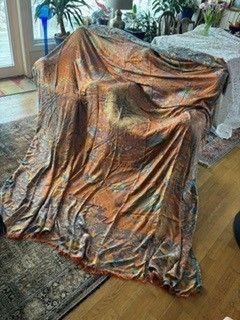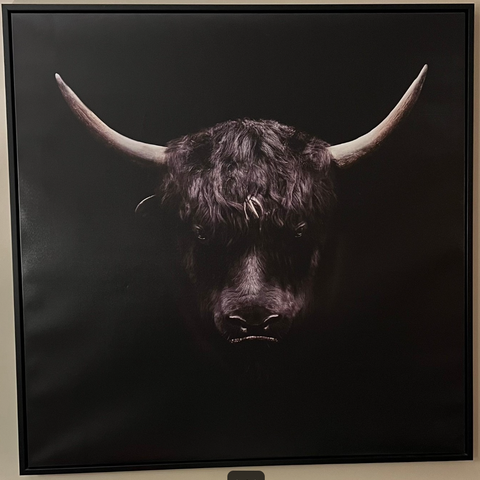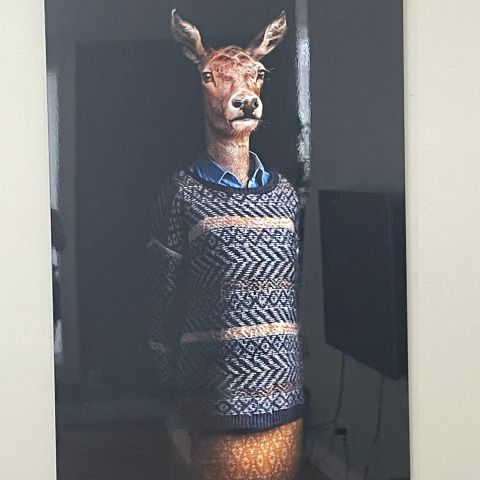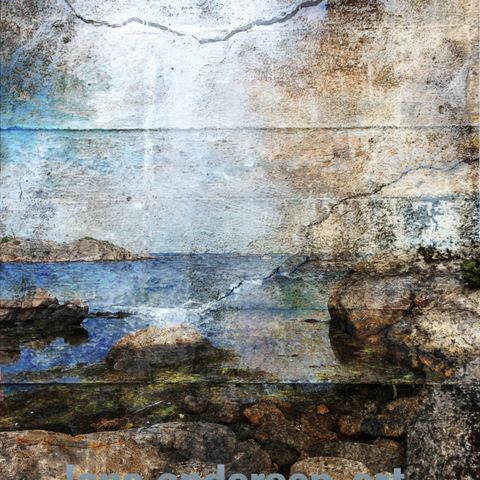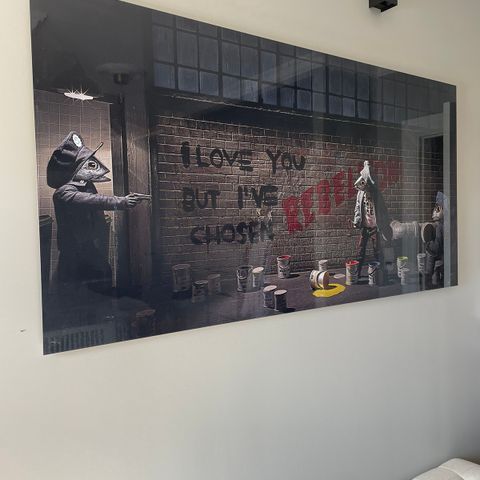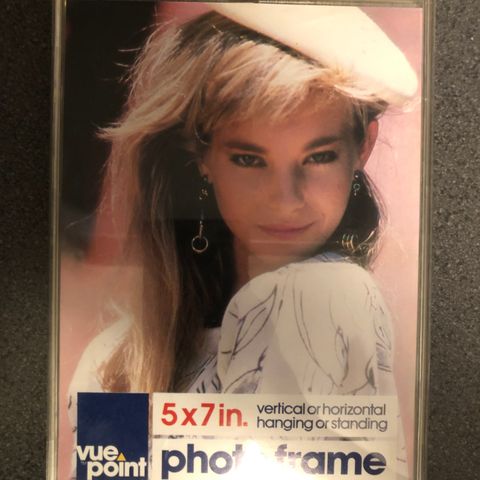Bildegalleri
Fotokunst Lauren Davis
Beskrivelse av varen
Etter å ha hengt opp tre stykk, har eg tre bilder att som eg må innsjå at eg ikkje får plass til...dei er av kunstnar Lauren Davis og bildene var ein del av utstillinga hos Fotogalleriet i Oslo (2018) kalla "Imperialist Nostalgia". Meir info om utstillinga, prosjektet og kunstnaren lenger ned. Pris kan diskuteres om du kjøper fleire!
Profesjonelt ramma inn i eik og refleksfritt glas, bildene måler 61,5 x 86,5 (3cm djup ramme) og er ganske tunge. Dei kan sjåast på Tonsenhagen, skriv mld her på finn, ikkje sms pliz :)
Bildene vart kjøpt for ca 4.400,- og eg selger dei for 3.200,- per stk (inkl. bkh-avgift). Hvis du vil ha alle tre, kan prisen diskuterast. Alle tre har stått pakka inn i bobleplast, lagra i jevn temperatur og i skygge. Eg er usikker på om det er museumsglas, men det er i alle fall ein viss grad av refleksfritt.
______________________________
https://fotogalleriet.no/exhibition/a-story-for-you-to-continue-imperialist-nostalgia/
(utdrag) "The digital collages grasp what it means to exist in a body that is constantly dissected and examined, and what it means to be aware of being both a woman and a person of colour. Davis here refers both explicitly to her own politicized black female body and a body that is representative for the female black body per se, and how its identity is consumed and transfigured by white supremacist capitalist society at large. "
https://www.lrndvs.com/
https://www.objektiv.no/journal/2017/11/7/lauren-davis
"Subjektiv part II, invites different artists, curators and thinkers to give us their recent critical perspectives on the issues at stake and on the status of the subjective as an artistic strategy in the current political climate. As a warm up, we'll share some statements here. Our coverartist Lauren Davis: Today, much of what we know is collapsing. Not only are our institutions changing, but the ideas and concepts we have come to know as absolute truths are rapidly transforming. Even the notion of distance is collapsing – everything is accessible and increasingly globalised. Combined with the oversaturation of visual news, these shifts make it difficult to articulate our place in the world, as well as in new media. Technology and the media are shaping our lives faster than we are able to create the language to describe, and we feel a shared dissonance. One of the affects of this tension of navigating through new media that is predictably unpredictable is that we retreat. We cling as much as possible to the voices and images that are familiar and comfortable when everything else is so uncertain.
The world has always undergone changes, but now it is much more apparent; every shift becomes tangible. Artists must be intent on reimagining futures. This does not have to be in a dystopian manner; there’s a way to represent the future by acknowledging history and the voices that have been underrepresented within it. Queer people, trans people, disabled people and women of colour have all been doing this work, creating in the margins of society and campaigning for our collective liberation for some time. Our attention must be tuned into their voices. We don’t need to reinvent the wheel; we just need to build upon the work that has already been done. To do this, we should look at communities that are different from our own and realise that banal attempts at diversity and inclusion will not work. People in positions of power must be willing to hand over their microphones so that marginalised voices can be amplified: listening to voices that have been silenced; listening as resistance.
I’m weary of the ways in which racism and inequality exist and manifest themselves all around the world in ways that are not always immediately visible. During this time I’ve been thinking a lot about what it means to occupy space. As a black woman, I’m always acutely aware of my surroundings and the way my body functions in a space, whether I’m the only black face or if I’m amongst many black faces. I’m always thinking about my identity and my body, not because I choose to, but because my survival and self-preservation depend upon it.
Appropriating existing photos for my collages allows me to examine the way in which images behave and look at their connection to the truth. The use of photography becomes less about memory and more about prophecy. The digital collages that I’ve created grapple with what it means to exist in a body that is routinely dissected and scrutinised; what it means to be aware of your body as a woman, and as a woman of colour – how the intersections of race and gender can police and further add to the politics of your body.
The collages are not only a hybrid of photographic material but they also combine literature from other writers of colour who have awareness of their own bodies and the ways in which history has allowed them to occupy the space they are in. Fundamentally, America and European nations are invested in not knowing what the body politic knows. Routinely asking questions about the intersections of race, gender and sexuality and challenging what we collectively know to be true is resistance. Critical thinking is needed more than ever now, and I want to remain here and present.
Lauren Davis has just graduated from Oslo National Academy of Arts."
#fotokunst #fotograf #kunst #collage #fotografi #photography #art
Du må være logget inn for å se brukerprofiler og sende meldinger.
Logg innAnnonsens metadata
Sist endret: 5.9.2024, 11:32 ・ FINN-kode: 296431079
Mer som dette
1 450 kr
